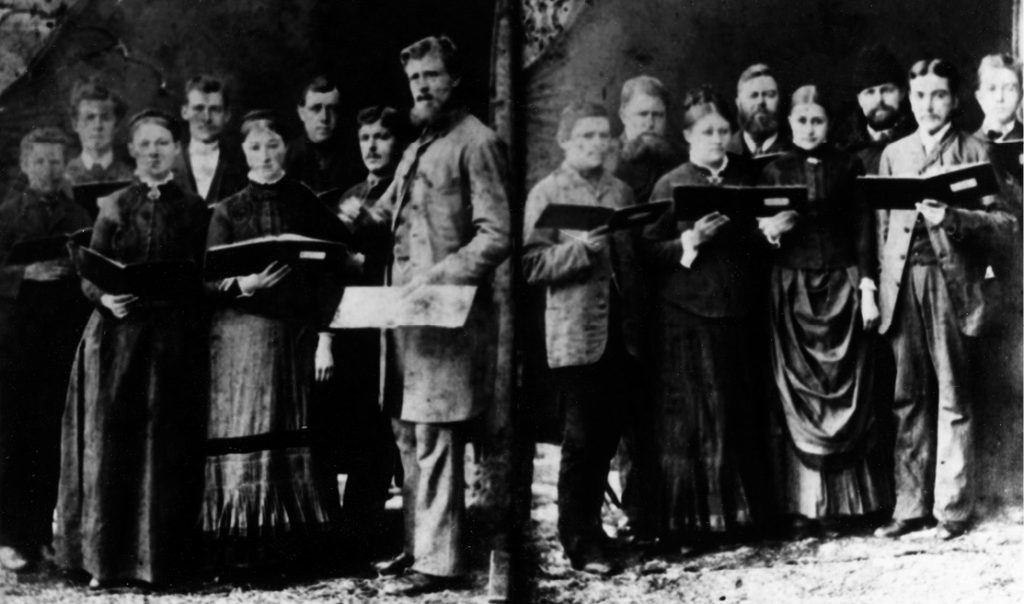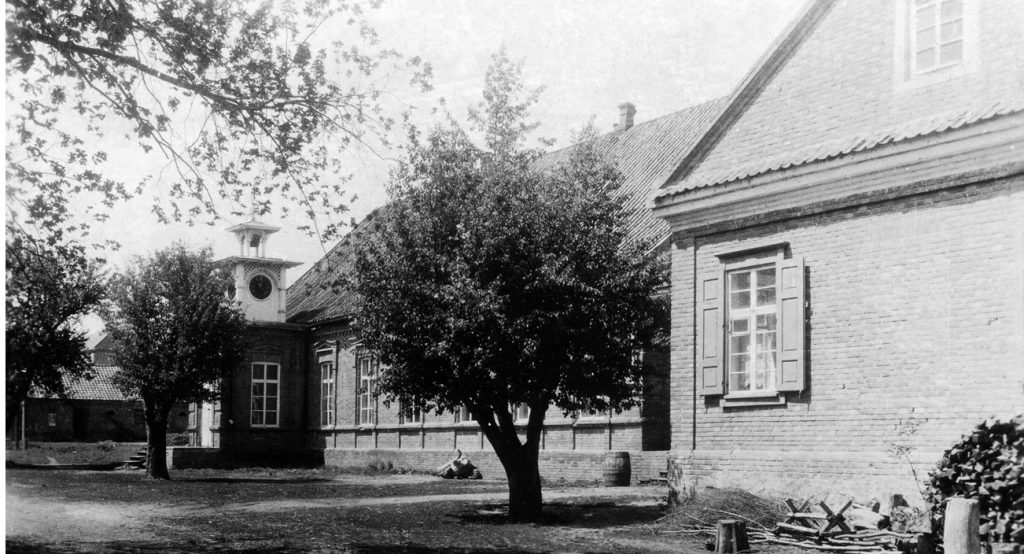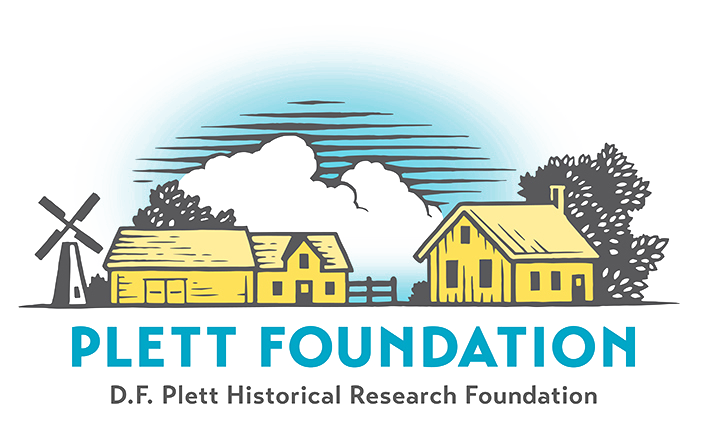A Story from Russia and Manitoba
Anonymous
Alook back in time and later, from the great decline in the year 1865 and afterwards.1 Because the decline had increased so much at that time, and I was only leading a worldly life at the time, I already had a feeling inside: what am I doing? I want one day to enter the eternal, blessed afterlife. So in time I realized that the general worldly life was increasing and how it was progressing.
But what struck me the most was this: how the new style of singing was introduced into the church, to say the least, by devious devices (which may be called the fruit of the high schools) – namely, that it was hatched in the high schools, and then made public at that time. The students who were taught in the high schools felt superior to all others at that time, for they saw no age, nor grey hair, nor did they feel any fear of God, as if they were superior to all.

They set about working independently and sat themselves in the temple, where it should not be, for they had practiced their singing in order to be heard on the coming Sunday, to sing the song which the old singers would announce, which they accomplished with their followers. For when the song was announced, these practiced singers sang with full voice according to their manner, so that all had to be silent before them. The old singers, who still wanted to keep the old song, were saddened by this, and what kind of devotion this was can be imagined but not experienced as it was felt by them.
Among these singers was Jacob Wiebe, our deceased bishop’s brother. The new “sing by numbers” melodies were sung from then onward. But the older singers were left behind. So it was left to the high school singers to sing. The same thing happened in the Chortitza church, and so the oldest Mennonite house of prayer gave way to the new style of singing.
In Burwalde, the old style of singing was kept for a short time, and for that time the older people who did not want to listen to the new style went there to worship. How long it was kept there is unknown to me. But in the course of time the new style of singing also penetrated there, in such a way that old fathers took their books and left the church so disheartened that they forgot their caps. Then the younger singers threw nasty handwritten notes down on the older singers saying that they should remain with them in the church. After that the people turned to our Bishop Gerhard Dyck, and at their request he came to make peace. He eventually decreed that the new style of singing should continue as it had begun, which caused great sorrow to many of the older God-seeking souls.

In time we emigrated to America. To my knowledge, in 1872 we were invited by an emigrant, Mr. Hespeler, to emigrate to America. In order to freely practice our faith there, according to our understanding of the gospel doctrine. It was soon decided to investigate the matter more closely, which was done by the Bergthal congregation, which sent deputies to investigate America. So they went in 1873, to find out whether it really existed, and to see at once whether it was possible to live there, and if we could hope for our natural progress there, which they found to be the case, and immediately brought back the certificate from the government. When the deputies returned safely, we immediately prepared to emigrate the following year.
In 1874, some of the Bergthaler emigrated to America. And in 1875 a number emigrated from the Old Colony. And in 1876 several more emigrated. I decided to go with my dear wife and five children. But fourteen families had to stay in the hospital in Liverpool because of the measles, where seven children from our group died. But finally, with God’s help, we arrived happily here in America after a nine-week journey.
I was where I longed to be when we left Russia with the verse that had been given us: “So I will lead you into the desert, so that I can speak to you in a fatherly manner.”
So we went straight back to work, for after we had again chosen a place for ourselves here, we discussed building a church, with the agreement that each owner should supply a beam of lumber. And when the church was finished, we thought with moving hearts of the Promised Land that was given to the children of Israel in the days of Moses. And so the time came for our house of prayer to be blessed. I was among those who stood at the door and sang with a moved heart: “Open the gates of Jerusalem and let your people into the temple,” and so on. The gates were opened, and but the struggle started all over again.
- Written by an unidentified writer, this narrative is excerpted in translation from an appendix to Ein Reisebericht von Russland nach Amerika anno 1875 herausgegeben vom Ältesten Johann Wiebe (Cuauhtémoc: Libreria “Aleman,” 1994), 32–34. ↩︎
